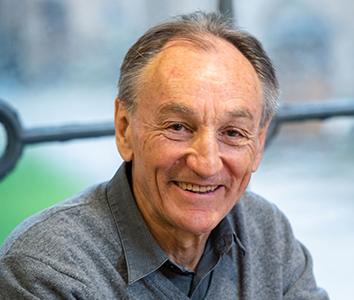Covid is still with us, new vaccines are needed and will likely continue to be needed into the forseeable future, and the case for human challenge trials to speed selection among promising candidates is stronger than ever. Two veteran advocates make the case:
Human Challenge Trials Hold Promise for Next-Generation COVID Vaccines— These investigations could accelerate effective development of a pan-coronavirus vaccine as well by Stanley Plotkin, MD, and Josh Morrison, JD November 7, 2022
"Two years ago, the prospect of deliberately infecting fully informed volunteers with COVID-19 to aid in vaccine research and development was controversial. We and many others argued that the risks were justifiable, and the reservations of some bioethicists did not deter nearly 40,000 people from over 160 countries from expressing interest in volunteering for these investigations, called human challenge trials. Yet in the end, while they have been extensively pursued in the U.K.*, there were no such studies in the U.S.
"We have made great strides against COVID-19 illness in the form of vaccination and treatments, but there are still thousands of deaths in the U.S. every week.
...
"The White House hosted a summit on the issue in July, showcasing the myriad ways researchers are going about developing new vaccines. There are hundreds of candidates in early stages around the world, but the resources devoted to COVID-19 vaccine research are a fraction of what they were 2 years ago. Human challenge trials can greatly speed the selection of the most promising in this field of candidates, providing scientific and economic benefits over uniform reliance on large field studies.
...
"The use of human challenge trials offers the greatest promise for testing intranasal vaccines for their ability to reduce infection and transmission. In the case of a live attenuated vaccine, something as simple as regular nasal swabbing can reveal just how much of the live virus is present in the nose over time -- and how much would spread when a patient sneezes, for example.
...
"There are obviously risks to COVID-19 challenge studies, and it was on these grounds that initial proposals for such research faced opposition. However, the risk of death is now lower than it was early on in the pandemic given better immune protection garnered from both vaccination and natural exposure, and various treatments options further reduce the risk.
Of course, long-COVID still looms large, but this risk can also be managed by selecting trial participants at lower risk of serious illness, as more severe COVID-19 illness is correlated with lingering post-COVID symptoms. Ultimately, if COVID-19 becomes endemic, long-COVID may well be a threat to everyone, whether or not they sign up for a challenge trial -- all the more reason we must act quickly to develop vaccines that stop transmission.
"We believe that volunteers are perfectly capable of considering these risks rationally. Those who decide to make a potential sacrifice for the good of humanity should be lauded, not dismissed as naive. (Notably, a study of the nearly 40,000-strong prospective volunteers organized by 1Day Sooner showed that their risk tolerance was the same as a control group, and they were driven primarily by altruistic motivations.)"
"Stanley Plotkin, MD, is professor emeritus in pediatrics at the University of Pennsylvania, a veteran vaccinologist, and a board member of 1Day Sooner, an organization that advocates on behalf of challenge trial volunteers. Josh Morrison, JD, is co-founder and president of 1Day Sooner, and a founder of Waitlist Zero and the Rikers Debate Project."
********
Earlier:
Monday, June 20, 2022
Report of a SARS-CoV-2 human challenge trial. In Britain.
there are four COVID challenge studies announced or underway
in the UK, though only imperial [the study above] has published results. Besides the imperial
one, there’s an Oxford reinfection study,
https://www.ox.ac.uk/news/2021-04-19-human-challenge-trial-launches-study-immune-response-covid-19
(interestingly the talk one of our staff saw indicated they were having a
difficult time getting any infections in previously infected people even when
using doses 1,000 times higher than the infectious imperial dose).
There has also been an Imperial delta study that’s
recruiting now —
And HVIVO has announced an omicron challenge study, though
I’m not sure that will happen.




